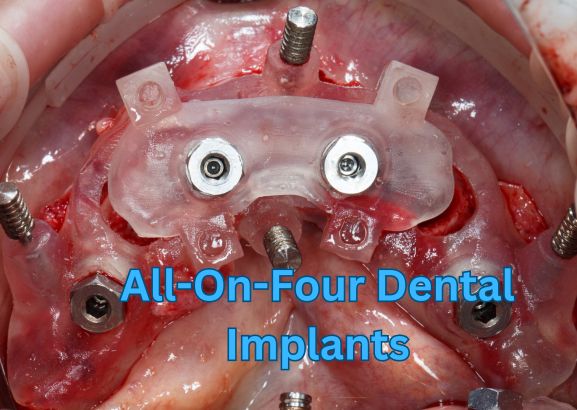Uncovering the Impact: Dental Implants and Your Sinuses
Last Updated on 6 months by DR. ALBIN SIPES
Yes, dental implants can affect your sinuses due to their proximity to the sinus cavity. Dental implants, a popular solution for missing teeth, can have an impact on your sinuses because of their close proximity to the sinus cavity.
The sinus floor and the upper jawbone are typically separated by a thin wall, which can be affected during dental implant surgery. When a dental implant is placed too close to the sinus cavity, it can result in sinus problems and complications.
This is known as a sinus perforation, where the implant protrudes or perforates the sinus membrane. It can lead to discomfort, sinus infections, and other sinus-related issues. Understanding the potential impact of dental implants on your sinuses is crucial before undergoing this dental procedure.
Understanding Sinus Anatomy
The sinuses are an integral part of our anatomy, playing a crucial role in the respiratory system. Located in the facial bones, they are interconnected and lined with mucous membranes. These structures serve to humidify and filter the air we breathe, as well as produce mucus to trap dust, allergens, and bacteria.
The relationship between the sinuses and the oral cavity is evident in their close proximity. Dental implants, when placed in the upper jaw, can potentially affect the sinuses. This is because sinus membranes can become irritated or even perforated during the implantation process.
Such issues may lead to sinus infections or complications. Therefore, it is vital to understand the sinuses’ structure and function, particularly when considering dental implants in the upper jaw. Proper assessment and communication between the dentist and the patient are key to avoiding potential sinus-related problems during the dental implant procedure.
Sinus Problems And Tooth Loss
Tooth loss can have an impact on your sinus health, leading to sinus problems. Your sinuses are connected to your teeth through the maxillary sinus, which is located above the upper jaw. When teeth are lost, this can create an empty space that can disrupt the proper functioning of the sinuses.
It can cause the sinuses to drop down and fill the gap left by the missing tooth, resulting in sinus problems such as inflammation, infection, and congestion. This can lead to symptoms like facial pain, headaches, and difficulty breathing. Therefore, it is important to address tooth loss with dental implants or other treatments to restore dental and sinus health.
Taking care of your oral health can have a positive impact on your sinus health as well. So, if you’re experiencing sinus problems, it may be worth considering the connection to your dental health.
Dental Implants: The Solution
Dental implants can have an impact on your sinuses, but they actually provide a solution to various dental issues. Dental implants are artificial tooth roots that are implanted into the jawbone. These implants are used to replace missing teeth and provide stability for dental restorations such as crowns, bridges, and dentures.
One of the benefits of dental implants is that they help preserve sinus health. When a tooth is lost or extracted, the jawbone may start to deteriorate, which can lead to the sinus cavity expanding into the empty space. Dental implants prevent this from happening by stimulating the jawbone and maintaining its structure.
This not only keeps the facial structure intact but also ensures that the sinus cavity remains at a healthy size. So, if you’re considering dental implants, rest assured that they not only provide a solution for missing teeth but also contribute to sinus health.
Assessing Sinus Compatibility For Dental Implants
Assessing sinus compatibility for dental implants involves considering various factors that determine their feasibility. These factors are essential in determining whether dental implants can affect your sinuses or not. Techniques used to evaluate the condition of the sinuses play a vital role in the success of dental implant placement.
Dentists carefully analyze the sinus structure, density, and dimensions through advanced imaging techniques. Additionally, the location and position of the sinuses are assessed to ensure they won’t be compromised during the implant procedure. Examination of the sinus floor and the thickness of the sinus membrane is also crucial in determining sinus compatibility.
All these assessments are necessary to minimize the risk of sinus complications and ensure successful implant integration. By evaluating these factors, dental professionals can provide patients with accurate information and determine the best course of action for their dental implant treatment.
Caring For Dental Implants And Sinus Health
Dental implants can potentially affect your sinuses, but proper care and hygiene can mitigate any risks. After receiving dental implants, it is crucial to prioritize sinus health alongside maintaining the implants themselves. Regular oral hygiene practices, such as brushing and flossing, remain important to prevent infections and maintain overall sinus health.
Additionally, it is essential to maintain regular appointments with your dentist for professional cleanings and check-ups. Avoiding smoking and practicing good nasal hygiene, such as using saline solution or nasal sprays, can also help protect your sinuses post-implantation. By following these maintenance and hygiene tips, you can ensure both the longevity of your dental implants and the health of your sinuses.
Common Concerns And Precautions
Dental implants can potentially impact your sinuses, and it’s important to address these concerns. Before undergoing the surgery, you should take certain precautions. Discussing any sinus-related issues with your dentist is crucial for proper evaluation and planning of the implant procedure.
During the surgery, your dentist will carefully navigate around the sinus area to minimize any potential complications. After the procedure, it’s advisable to follow specific guidelines provided by your dentist to ensure a smooth recovery. These may include avoiding forceful nose blowing and maintaining good oral hygiene.
By taking these precautions, you can minimize the risk of sinus-related complications and ensure a successful dental implant experience. Remember, always consult with your dentist for individualized advice and recommendations for your specific situation.
Potential Complications And Their Management
Dental implants have the potential to affect your sinuses, leading to possible complications. These complications can include sinusitis, sinus membrane perforation, and sinus infections. To minimize the risk of such complications, there are certain strategies that can be implemented during the implant placement process.
One approach is to use computer-guided implant surgery, which helps in precise planning and reduces the chances of sinus-related issues. Another strategy is to choose an experienced and skilled implant dentist who can accurately assess the sinus anatomy and place the implants without causing any damage to the sinuses.
In cases where complications arise, prompt management is crucial. This may involve prescribing antibiotics to treat sinus infections or sinus lifts to repair a perforated sinus membrane. By employing these strategies, dental implant complications related to sinuses can be minimized and effectively managed.
Patient Experiences And Testimonials
Dental implant surgery can potentially impact sinus health, but real-life stories from patients provide valuable insights. Many individuals who have undergone dental implant surgery have experienced an improvement in their sinus health. The implants can sometimes press against the sinuses, resulting in a slight elevation and thereby opening up the sinus cavity.
This improvement can lead to better drainage and reduced congestion, ultimately benefiting overall sinus health. Patients have reported an alleviation of sinus-related symptoms, including fewer sinus infections and improved breathing. These testimonials shed light on the positive impact dental implants can have on sinus health, offering hope for those considering this procedure.
Ultimately, the experiences of others provide valuable information for individuals seeking to make an informed decision about dental implant surgery and its potential effects on sinus health.
Frequently Asked Questions On Can Dental Implants Affect Your Sinuses
Can Dental Implants Cause Sinus Problems?
Dental implants, when properly placed, should not cause sinus problems. However, if the implant is placed too close to the sinuses or if there is a complication during the procedure, it can potentially affect the sinuses. It’s crucial to have an experienced dentist who can assess the situation and take necessary precautions.
Can Dental Implants Affect Sinus Congestion?
In rare cases, dental implants can lead to sinus congestion. If the implant protrudes into the sinus cavity or causes an infection, it can result in congestion. However, with proper implant placement and post-operative care, the risk of sinus congestion is minimal.
How Common Is Sinus Perforation During Dental Implant Surgery?
Sinus perforation during dental implant surgery is uncommon. It typically occurs when an implant is being placed in the upper jaw, where the sinuses are located. Skilled implant dentists take precautions to prevent this complication, but if it does happen, necessary measures can be taken to address it during the procedure.
Are Dental Implants Safe If You Have Sinusitis?
If you have sinusitis, it’s essential to consult with your dentist before considering dental implants. Sinusitis can complicate the implant procedure and prolong the healing process. Your dentist will evaluate your condition and determine if it’s safe to proceed with the implant surgery or if additional treatment for sinusitis is required first.
How Soon Can I Fly After Dental Implant Surgery?
To avoid post-operative complications, it’s recommended to wait at least 48 to 72 hours before flying after dental implant surgery. Changes in air pressure during a flight can affect the healing process. It’s best to consult with your dentist and follow their specific guidelines for when it’s safe to fly after the procedure.
Conclusion
To sum it up, dental implants have the potential to cause sinus complications in certain cases. While it is a rare occurrence, patients should be aware of the potential risks involved. It is crucial to consult with a skilled dental professional before undergoing the procedure.
They will assess your sinus health and determine the best course of action. In some instances, a sinus lift may be recommended to create sufficient space for the implant. By taking these precautions, you can minimize the risk of sinus problems and ensure successful implants.
Remember to follow the post-operative instructions provided by your dentist, as proper care and hygiene are key to a smooth recovery. With the right precautions, dental implants can be a life-changing solution for those with missing teeth, restoring their confidence and overall oral health.


